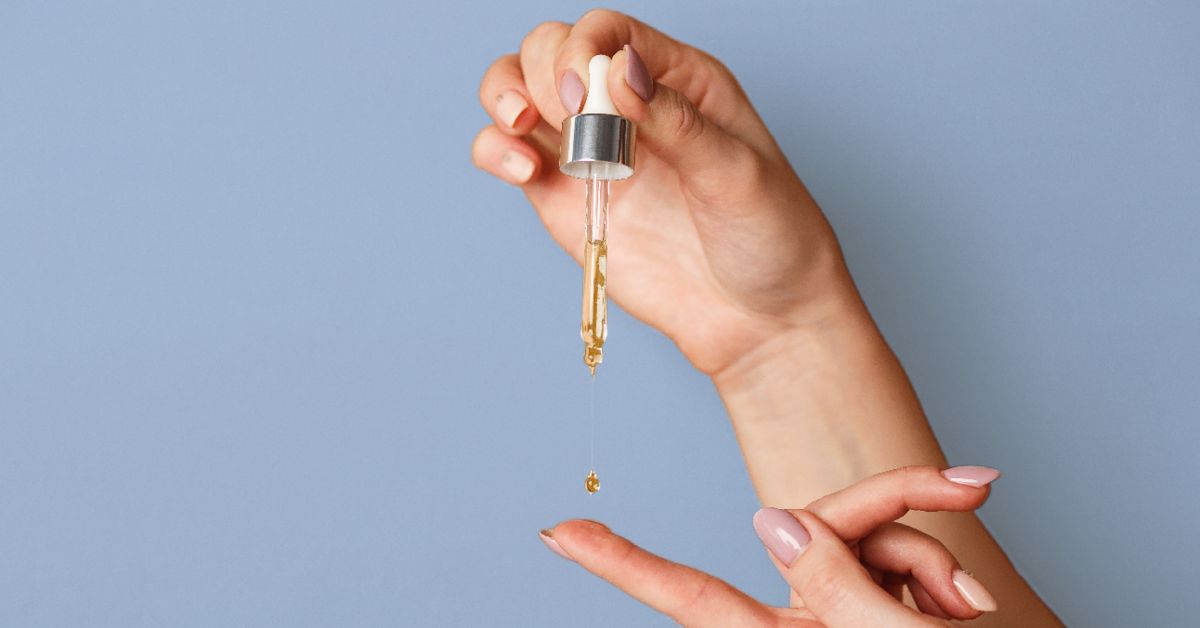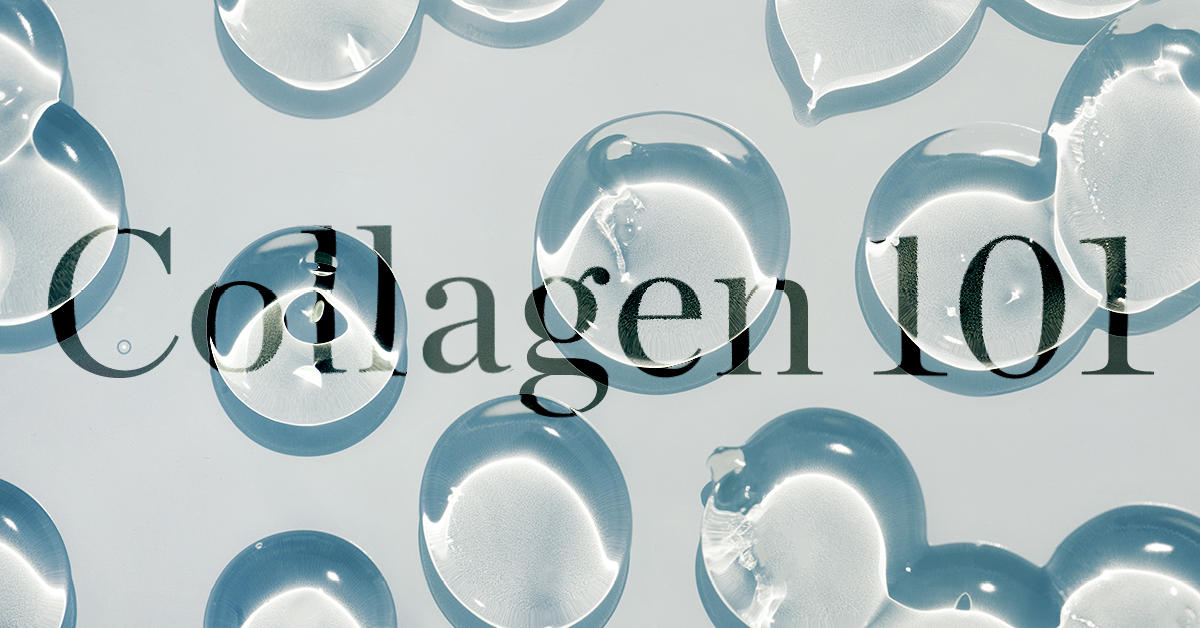
Building a good skincare routine can be confusing. With so many different products and ingredients to choose from, it’s hard to know what product is best for your skin type. One ingredient that has many proven benefits for all skin types is the super-powered antioxidant vitamin C.
A winter skincare routine needs vitamin C
Winter skincare can be tricky—you don't want to add too many products into your routine, which can make the skin drier. However, there is one skincare ingredient that should not be overlooked. Dermatologists and skin experts agree that incorporating vitamin C into your routine is part of a comprehensive approach to both prevention and correction.
How to incorporate vitamin C into your skincare routine
While cleansing, moisturizing and sun protection are the cornerstones of any skincare routine, a vitamin C serum is the next essential. The best way to incorporate vitamin C into your skincare routine is with daily usage of an at-home skincare product, ideally a lightweight serum or oil. The benefits of a vitamin C product include:
- Boosting collagen
- Protecting skin from environmental damage caused by the sun, pollution, smoke and daily life
- Preventing the signs of early aging
- Firming and brightening the skin
Vitamin C Skincare: Why use it in the winter?
While vitamin C is an essential part of any complete skincare regimen, winter is an especially good time to add this tried-and-true ingredient to your routine. While using vitamin C in the summer is smart, frequent sun exposure might cause pigment to accumulate, undoing the work the vitamin C is trying to do.
The sun and vitamin C: What you should know
Additionally, vitamin C can act as a photosensitizer, meaning it can make the skin more susceptible to sensitive when exposed to the sun. For this reason, using a vitamin C skincare product during the winter is a smart and valuable choice.
How vitamin C can help protect the skin barrier in the winter
Another benefit of vitamin C in the winter is the environmental protection it offers. Free radicals can impair the skin’s natural barrier, removing healthy oils from the surface. These oils normally help keep hydration in the skin and protect it from environmental aggressors. If the barrier is not functioning optimally, skin can easily become extremely dry, dehydrated, and more prone to breakouts.
Why winter is especially bad for the skin barrier
Barrier impairment is more of a concern during the winter because the harsh weather conditions due to dry air, indoor heat, winter sports can mean a loss of hydration and moisture has an even greater effect. Antioxidants like vitamin C fight free radicals, slowing or reversing these negative changes.
How does Vitamin C benefit the skin?
"Vitamin C is one of the most potent and effective antioxidants available," says New York City board-certified dermatologist Dr. Nava Greenfield. "It works by reducing damaging and dangerous oxygen species, called free radicals, which could damage the DNA in the skin." If you don't properly protect the skin from UV damage, the negative effect can be irreversible and may lead to photoaging, discoloration, and even skin cancer.
Why you want to add vitamin C to your skin—and to your diet
"Vitamin C introduced to the skin topically will work on the skin protecting it from outside toxins such as sunlight, pollution and smoke, which produce reactive oxygen species. When ingested orally, diets high in vitamin C has been linked to a lower likelihood of wrinkle appearance and less dryness," explains Dr. Greenfield.
The best foods containing vitamin C
According to Healthline, foods rich in vitamin C can help boost the production of hyaluronic acid and collagen in the skin and body. Some of the top foods containing vitamin C are:
- Kale
- Brussels Sprouts
- Red Peppers
- Oranges
- Strawberries
- Broccoli

Why you need a vitamin C serum in your skincare routine
There are many different types of product formulations available, so why look for a vitamin C in serum form? "Serums work by introducing a stable and permeable form of vitamin C into the skin so that it can penetrate the skin and act as an antioxidant where it is needed," explains Dr. Greenfield. "A serum has to be tested in clinical trials to know it's effectiveness."
Product recommendation: HydroPeptide LumaPro-C Face Serum contains a highly stabilized vitamin C with clinical studies showing 75% of participants saw improvement in hyperpigmentation.
Vitamin C is a collagen booster and protector
A benefit of vitamin C is that it stops collagen from breaking down and helps collagen fibers form and stabilize. "Vitamin C has demonstrated in studies to decrease the activity of proteins in the skin that damage collagen,” says Dr. Greenfield. “In that way it preserves the collagen found in the skin from breakdown; works as a cofactor for enzymes that stabilize collagen fibers; and directs the cells to start collagen synthesis."
How does vitamin C serum help prevent UV damage and repair sun damaged skin?
Dr. Greenfield says: "Sun exposure leads to a reduction in the number of immune cells in the skin. Vitamin C acts on the skin to limit the reduction of these cells in sun exposed skin. As a result, vitamin C effectively acts as an immune booster."
Vitamin C is the ultimate skin protector
In addition, while a broad-spectrum SPF of at least 30 should be worn every day to protect the skin, sunscreens are only partially successful at blocking free radical damage caused by exposure to UV rays. A 10% topical solution of vitamin C has been shown in studies to limit that cell death and DNA damage that is caused by sunlight. This may also aid in the protection against the development of skin cancer.

What is the ideal concentration of vitamin C in a skincare product?
Vitamin C at a concentration of 10%-20% has been shown to have a collagen stimulating benefit. "The more collagen the skin has and the healthier it is, the more hydration the skin can hold. This is always important, but especially during the winter months," says Dr. Greenfield.
Product to try: The HydroPeptide Firma-Bright 20% Vitamin C Booster is easy to use and complements any regimen. Just add 3-5 drops into your favorite moisturizer for a powerful collagen stimulating signal along with the well-loved brightening benefits of vitamin C.
Vitamin C brightens the skin during the winter
Finally, one of top benefits of using vitamin C in the perfect winter is its brightening properties can be most effective. The HydroPeptide Firma-Bright 20% Vitamin C Booster also contains skin-brightening peptides to help give skin a much-needed glow during the winter months. Vitamin C isn't just for brightening, the firming properties are astounding as well. Brighter, firmer and well-protected skin: the benefits of vitamin C are not to be overlooked.












